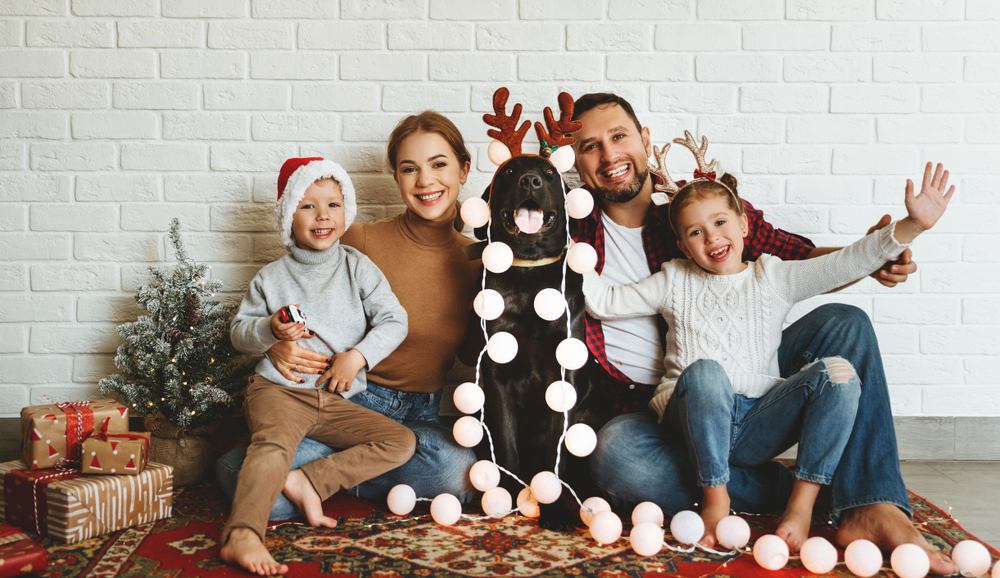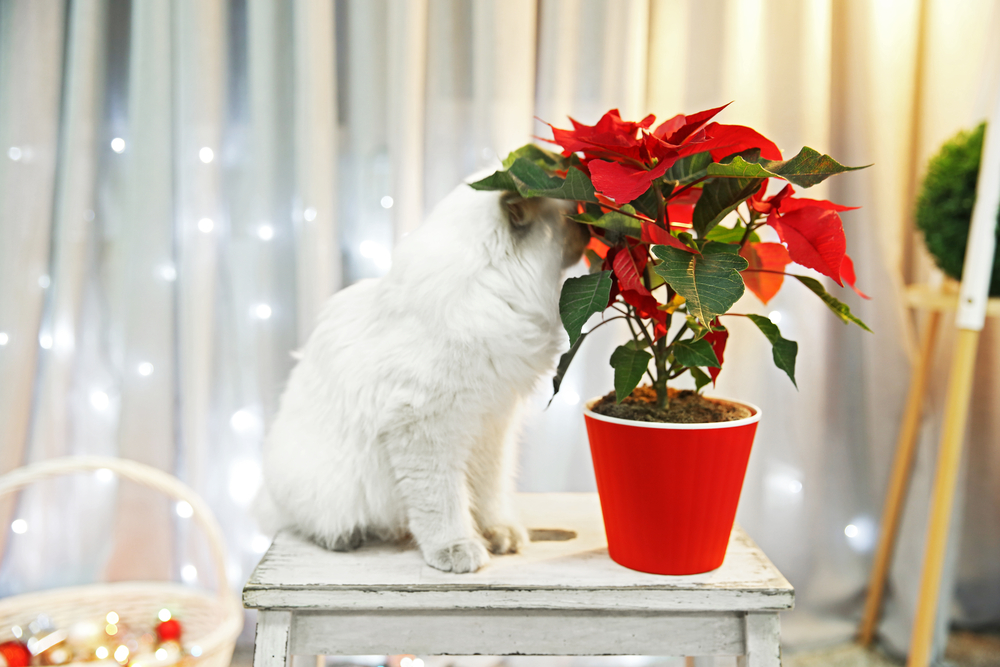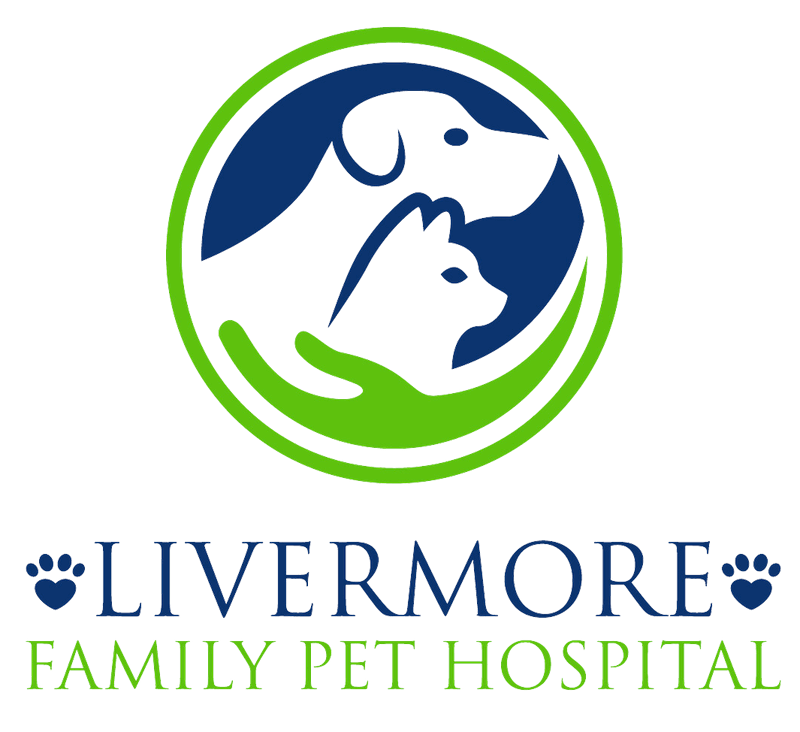
Christmas music is playing non-stop on the radio, and the malls are packed with shoppers searching for a holiday deal. But, at this exciting time of year, the festivities can be dangerous for your pet. Our Livermore Family Pet Hospital team wants to help by providing do’s and don’ts to protect your four-legged family member from potential holiday season hazards.
DO ensure your Christmas tree is pet safe
You bring home a tree that you string with flashing lights, and you hang dangly, shiny ornaments from the branches. Of course, your pet will investigate. Unfortunately, Christmas tree-pet interactions can result in catastrophe. Tips to ensure your Christmas tree is pet safe include:
- Stabilize your tree — Whether you have a curious cat who decides to climb the tree, or an inquisitive dog who sticks their head between the branches, your unstabilized tree could easily fall. Ensure the tree is appropriately secured in a sturdy tree stand, and anchored to the ceiling or an adjacent wall for further stability.
- Use pet-friendly ornaments — Pets frequently investigate their environment mouth first, and may shatter a breakable ornament and injure their mouth or face. Choose pet-friendly ornaments, or hang your ornaments on the higher branches your pet can’t reach.
- Rethink the tinsel — Tinsel is a pretty addition to your Christmas tree, but the sparkly strings tend to attract pets, especially cats. If your pet ingests a tinsel strand, they can develop a gastrointestinal (GI) linear obstruction, requiring surgical removal.
- Protect electrical cords — Many pets like to chew on electrical cords, so keep them covered to prevent accidents.
DON’T let your pet partake in the holiday feast
Any change in your pet’s diet can result in GI upset, and pets can be in danger from certain holiday foods, including:
- High-fat foods — Many dishes served at a holiday feast are high in fat. Pets are sensitive to fatty foods, and a high-fat meal can result in a painful, potentially life-threatening condition called pancreatitis.
- Bones — Cooked bones are brittle and can easily splinter, injuring your pet’s mouth or GI tract.
- Yeast dough — Uncooked yeast dough can swell in your pet’s stomach, causing your pet to bloat, and potentially leading to gastric dilatation and volvulus (GDV). In addition, alcohol is produced during fermentation and can enter your pet’s bloodstream, causing alcohol poisoning.
- Chocolate — Chocolate contains caffeine and theobromine which are toxic to pets, causing signs such as restlessness, vomiting, diarrhea, increased heart rate, and seizures. The darker the chocolate the more dangerous for your pet.
DO keep your pet calm during the party
Many pets are stressed by large gatherings. Tips to protect your pet when you have guests include:
- Create a pet safe area — Designate a room in your home where your pet can go if they feel stressed or overwhelmed by the gathering. If your pet is prone to anxiety, consider sequestering them there during your party. Leave music playing to help drown out the party noise, and offer a food-puzzle toy as a distraction.
- Identify your pet — Many pets go missing during the holidays because they want to escape the festive mayhem. Ensure your pet is appropriately identified so they can be returned if they get lost. Microchipping your pet is the best way to ensure they are permanently identified, and they should also wear a snug-fitting collar and identification tags with your current contact information.
- Consider anxiety relief — If your pet is known to be anxious around crowds, ask our veterinary team if an anti-anxiety medication or supplement could help them cope during the holiday season.
DON’T let your pet access your guests’ belongings
Most pets will investigate coat pockets and purses to find an interesting treat, but your guests may carry dangerous items that can harm them, such as:
- Xylitol — Xylitol is a sugar substitute commonly used in sugar-free mints and gum. A pet who ingests this product will experience a dose-related insulin release that can result in severe hypoglycemia, with signs including vomiting, weakness, seizures, and collapse, and sometimes liver failure.
- Pain medications — Pain medications, such as acetaminophen and ibuprofen, are toxic to cats, and can cause GI ulcerations, and liver and kidney failure.
DO choose pet-friendly decorative plants

Many seasonal plants used for holiday decorating are toxic to pets. Ensure all plants you bring in your home are pet-friendly. Plants to avoid include:
- Poinsettia — Sap from the poinsettia plant can irritate your pet’s mouth and esophagus, causing signs including excessive drooling and vomiting.
- Holly and mistletoe — These plants contain toxins that cause signs including GI upset, excessive drooling, a sudden and severe drop in blood pressure, and breathing problems.
- Lilies — All lily parts, including the vase water, are toxic to pets, especially cats. Signs include severe GI upset, arrhythmias, convulsions, and kidney failure.
Following these do’s and don’t can help protect your pet this holiday season. If you would like your pet microchipped before the festivities begin, contact our American Animal Hospital Association (AAHA)-accredited team at Livermore Family Pet Hospital, and let us ensure they are ready for the holidays.

